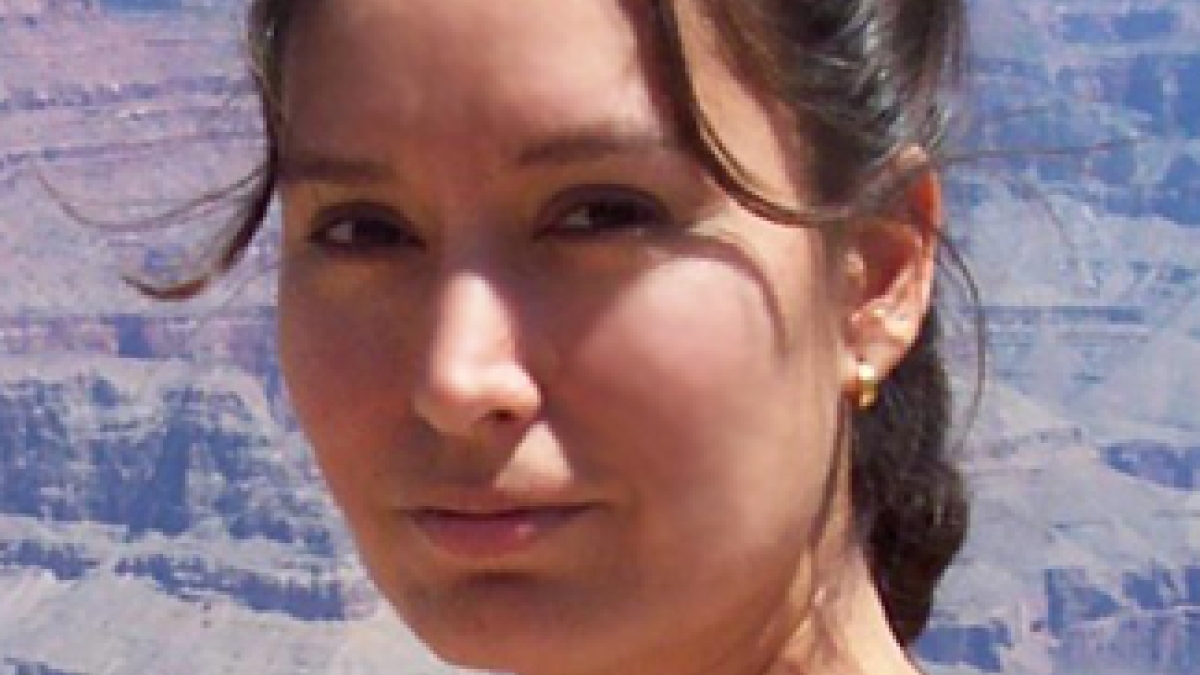Preventing disease outbreaks, creating vaccines are goals of doctoral biology grad

Susan Holechek, a native of Peru, was part of the response team at the Peruvian National Institute of Health as she witnessed the country’s first major dengue fever outbreak. The mosquito-borne viral disease causes a severe flu-like illness and can spark a potentially lethal haemorrhagic fever.
“Dengue is also called breakbone fever because the pain can be so severe it feels like your bones are breaking,” says Holechek. “There is no vaccine for dengue and no specific medical treatments.”
According to the World Health Organization (WHO) about 2.5 billion people – two-fifths of the world's population – are at risk from dengue. “Despite the presence of the mosquito vector for the disease in 28 states, including Arizona, it seems that few people are aware of it,” notes Holechek.
Observing the brutal effects of more than 28,000 dengue cases in Peru, including the death of a six-year-old girl, motivated Holechek to find ways to combat the disease. After working as part of a dengue multidisciplinary group at the Peruvian NIH, she continued her research at Arizona State University, where she is receiving her doctorate in molecular and cellular biology this December.
Numerous accomplishments and successes have marked her years at ASU, despite the initial challenges of overcoming the language barrier, then learning to balance graduate studies and teaching with marriage.
While at ASU, Holechek formed a partnership with David Murillo, a doctoral student in applied mathematics, and the Dengue Intervention team was born. Their objective is to combine the fields of molecular biology and advanced mathematics in hopes of saving lives through predicting future dengue outbreaks.
With Fabio Sanchez of ASU’s Mathematical, Computational and Modeling Sciences Center (MCMSC), Holechek helped launch the UCR-ASU Collaborative Dengue Fever Project this summer, the first collaboration between ASU, the Universidad de Costa Rica and the Costa Rican Ministry of Health.
As a doctoral student in the Molecular and Cellular Biology program in the School of Life Sciences, Holechek also studied the use of a recombinant vaccinia virus (VACV) for post-exposure protection against lethal poxvirus infections. This research was done at Bertram Jacob's lab in the Center for Infectious Diseases and Vaccinology in the Biodesign Institute.
Because VACV has been used successfully for more than 200 years to eradicate smallpox, Holechek believes that it could also be used to combat other diseases. “VACV has been and is currently used as a vector, a vehicle capable of delivering different kinds of passengers, little pieces of other pathogens, safely into the body. The goal is to mount a good immune response and protect the individual against a future infection, such as HIV.”
Holechek highlights the importance of interdisciplinary collaboration, such as combining mathematical modeling and modern medicine in predicting, preventing and treating disease outbreaks.
Since joining ASU, Holechek has received the Graduate and Professional Student Association (GPSA) Teaching Excellence Award, received a Faculty Emeriti Association Fellowship, and was named Teaching Associate of the Year by the School of Life Sciences in the College of Liberal Arts and Sciences.
She also serves as membership chair of the Association for Women in Science (AWIS) – Central Arizona Chapter, volunteers for the "Ask a biologist" program in the School of Life Sciences and is a member of the Informal Science Communication group. The Dengue Intervention team was a finalist in the Innovation Challenge for 2011.
In preparation for her future teaching career, she has graduated from both years of the Graduate College’s Preparing Future Faculty (PFF) program, mentored undergraduates in the Shades Multicultural Mentoring program, and interns at the Biodesign Institute.
The first in her family to earn a graduate degree, she will celebrate graduation with her mother, husband, and other family members at commencement. “This is the end of my formal studies and the beginning of a new career,” she says. “I am ready but I’m not done – science never sleeps!”
Research on dengue will continue as Holechek begins a postdoctoral position at the Biodesign Institute with Joseph Blattman.
With her many achievements, Holechek also has many expressions of gratitude for those who have supported and nurtured her, including advisor Bertram Jacobs and committee members Carlos Castillo-Chavez, Brenda Hogue, Wayne Frasch and Valerie Stout.
She is also grateful for the opportunities and funding for research from the National Science Foundation (NSF), More Graduate Education at Mountain States Alliance (MGE@MSA), Alliance for Graduate Education and the Professoriate (AGEP), the ASU Graduate Professional Student Association, ASU Faculty Emeriti Association and the ASU Graduate College.
“Special thanks to my Mom Yola, my loving husband Jason, my new parents Michelle and Jim, my godparents Tere and Juan and all my family and friends in Peru and the U.S.,” she says. “I am also celebrating graduation in loving memory of my father Angel Douglas, who despite only having a high school education, nurtured my love and respect for science from a very young age.”
Michele St George
Publications, Graduate College
michele.stgeorge@asu.edu
480-965-5995